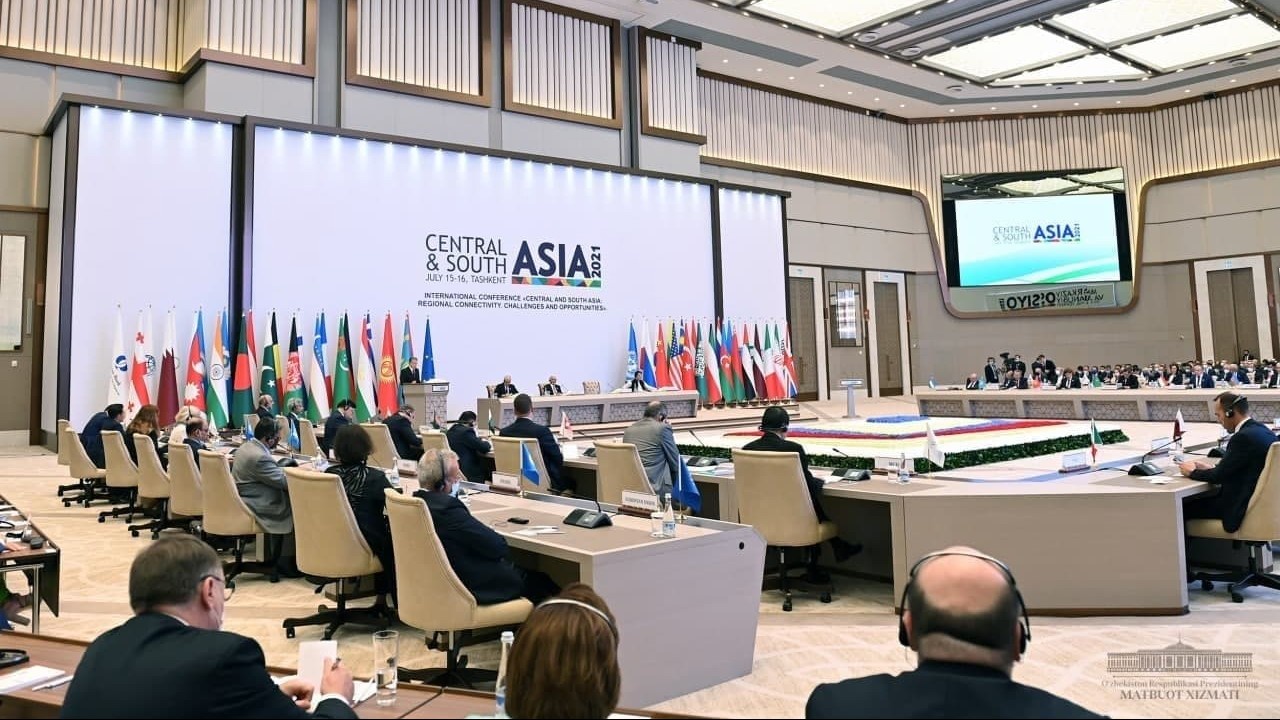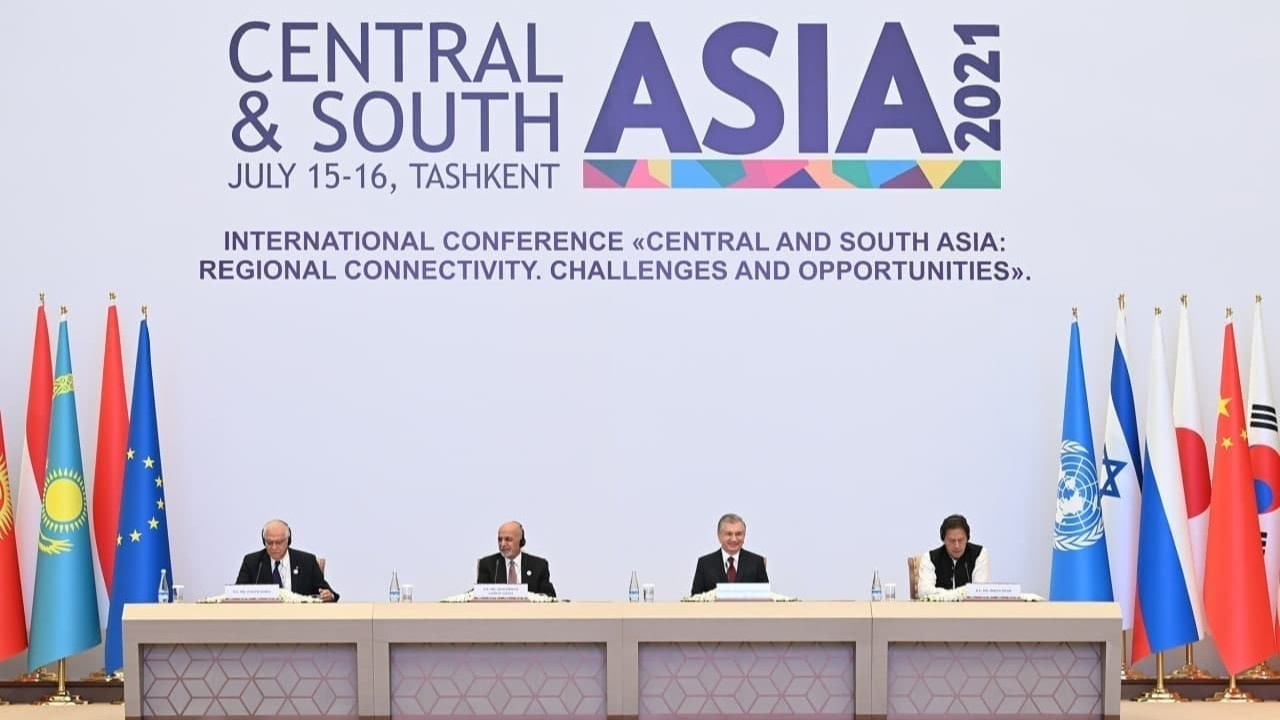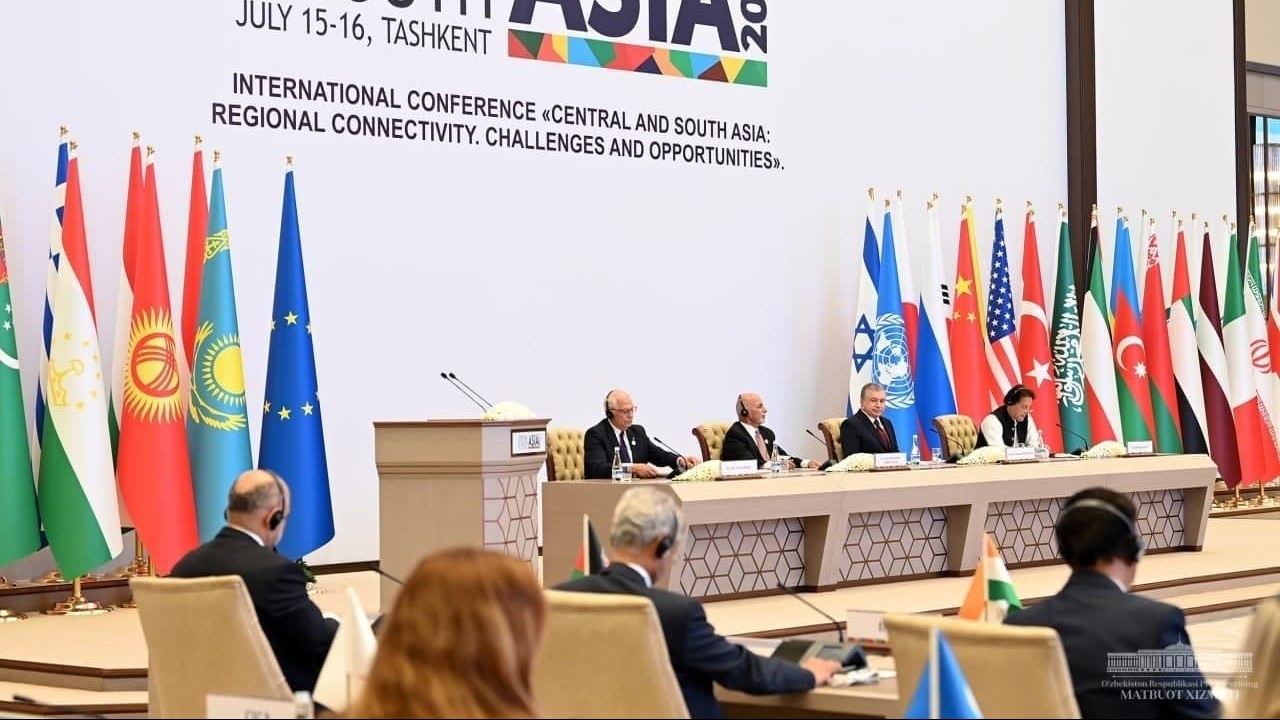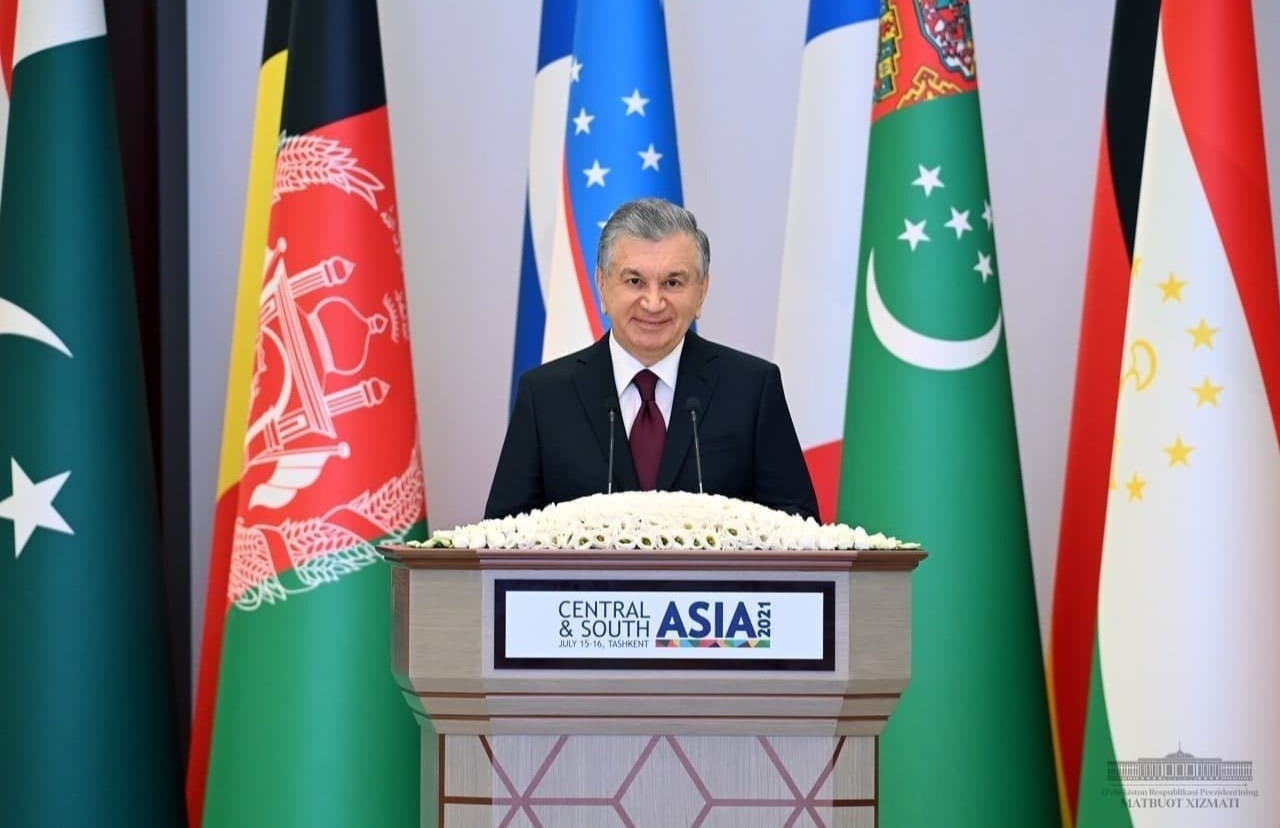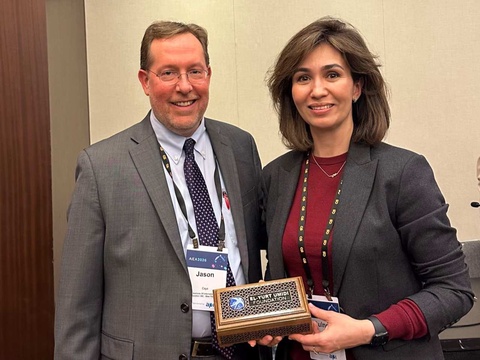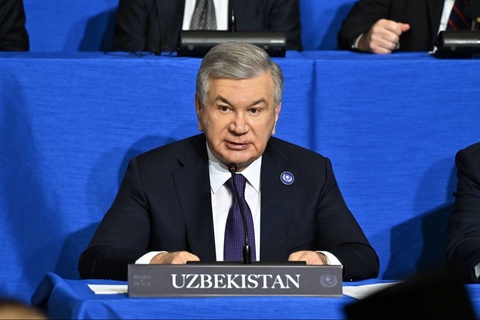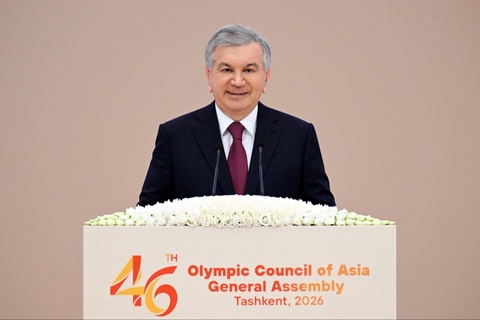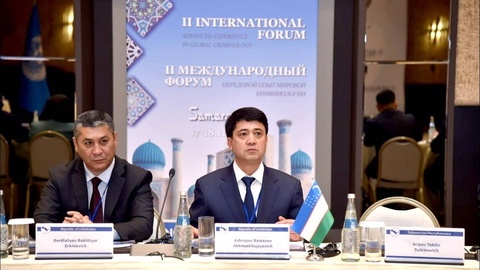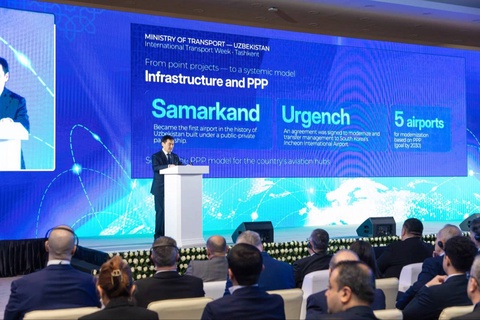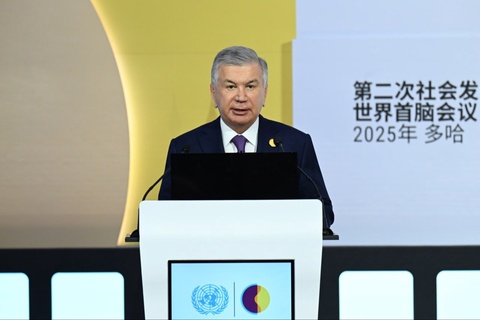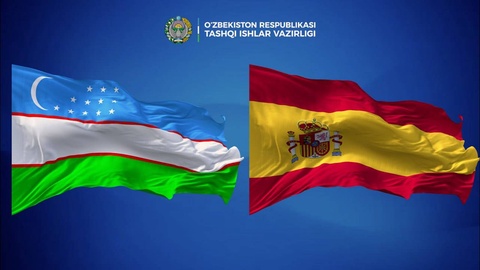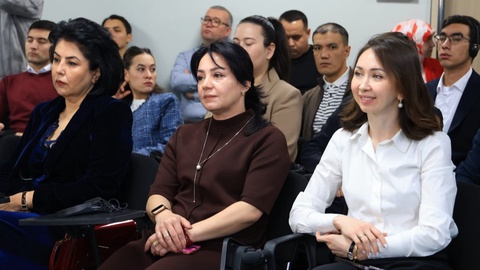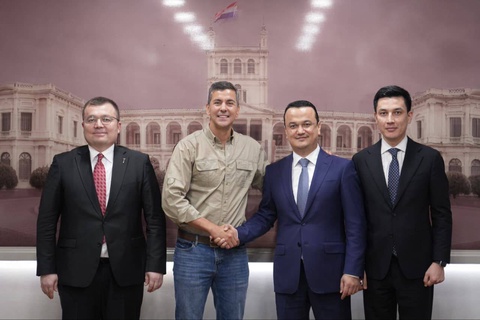The conference, organized at the initiative of President Shavkat Mirziyoyev, is attended by the President of the Islamic Republic of Afghanistan, the Prime Minister of the Islamic Republic of Pakistan, the ministers of foreign affairs of Central and South Asian countries, delegations of 44 countries and about 30 international organizations, heads of authoritative research and analytical centers.
The President of the Republic of Uzbekistan Shavkat Mirziyoyev emphasized the historical proximity of the regions of Central and South Asia, the importance of strengthening it based on mutual trust and consideration of interests.
Central and South Asia have interacted with each other since ancient times. New knowledge and scientific achievements, cultural and spiritual values were spread along the Great Silk and Indo-Gangetic Roads. The peoples of both regions were within the framework of common state formations – the Bactrian and Kushan kingdoms, the Turkic Khaganate, the states of the Ghaznavids, Timurids and Baburids.
Unfortunately, in the 19th century, connectivity was broken. Various obstacles arose, and the era of cooperation was replaced by a period of confrontation and mistrust.
In his speech, the Head of the state emphasized the importance of reviving historical ties and joining efforts.
“Today the world has entered the era of global geopolitical transformations, which bring both challenges and new opportunities. In these conditions, the revival of mutual ties between Central and South Asia, where about two billion people live today, is becoming an even more demanded and objective process. I think that the time has come, based on the huge historical, scientific, spiritual and cultural heritage of our peoples, the complementarity of economies, the availability of intellectual potential, to consolidate our joint efforts, which will undoubtedly give a powerful synergy effect”, Shavkat Mirziyoyev said.
Indeed, strengthening peace and friendship, trust and good-neighborliness, enhancing mutually beneficial cooperation between our countries, building an open and constructive policy meet the common interests of all states of Central and South Asia.
In his speech, the President put forward important initiatives aimed at achieving these goals.
The priority importance of trade and economic cooperation was noted. Conduction of an annual interregional forum was proposed to discuss the current issues of enhancing the economic agenda of cooperation, deepening cooperation and investment interaction between the countries of the two regions.
The President of Uzbekistan paid special attention to the issue of building a transport and logistics infrastructure that will effectively and safely connect Central and South Asia. The Termez – Mazar-i-Sharif – Kabul – Peshawar railway is to become a key element of the entire architecture of the connectivity of our regions, the construction project of which has already received wide support, including from leading international financial institutions. The construction of this railway will make it possible to fully realize the transit potential of the two regions, form the shortest route, and significantly reduce the time and costs for the transportation of goods.
The need was noted for the development of specific measures to implement digital connectivity in trade, transit and border crossing, to adopt a Joint Action Strategy.
The global urgency of the problem of ensuring food security is growing. In this regard, the President proposed to hold a meeting of regional agriculture ministers under the auspices of the UN Food and Agriculture Organization to develop a joint program of measures.
Measures to strengthen security and stability in the region, fight against terrorism, extremism and cross-border crime were also considered.
The importance of environmental protection and the development of a green economy was emphasized.
Views were expressed on the formation of a single platform of tour operators for the full realization of the tourism potential of Central and South Asia, the further development of tourism in the region jointly with the World Tourism Organization.
Enhancing scientific, cultural and humanitarian exchanges plays an important role in strengthening friendship and trust. In this regard, it was proposed to hold an international forum on the historical heritage of Central and South Asia in Termez under the auspices of UNESCO.
The Head of the state paid special attention to cooperation in science, technology and innovation. He noted the importance of stimulating joint research and exchange programs, as well as introducing a simplified visa regime for scientists and researchers.
As is known, on the eve of the conference, the International Institute for Central Asia opened in Tashkent. The President proposed to create an expert group on the development of regional cooperation based on this analytical center.
“The historical, cultural and civilizational community of Central and South Asia, the coinciding interests of our countries and peoples are a solid foundation on which we can build a common prosperous future. Together we will have to turn Central and South Asia, and our entire Eurasian continent, into a stable, economically developed and prosperous space”, the President of Uzbekistan said.
The UN Secretary-General António Guterres addressed the conference participants via a video message.
President of the Islamic Republic of Afghanistan Ashraf Ghani, Prime Minister of the Islamic Republic of Pakistan Imran Khan, High Representative of the European Union for Foreign Affairs and Security Policy/Vice President of the European Commission Josep Borrell spoke about the prospects for cooperation in the region and the importance of the forum.
The conference continues. Opportunities and initiatives aimed at further strengthening regional connectivity in trade, economic, transport and communication, cultural and humanitarian spheres will be discussed at the plenary and breakout sessions of the forum.
Following the conference, it is planned to develop a special draft resolution, which will be submitted for consideration by the UN General Assembly.


